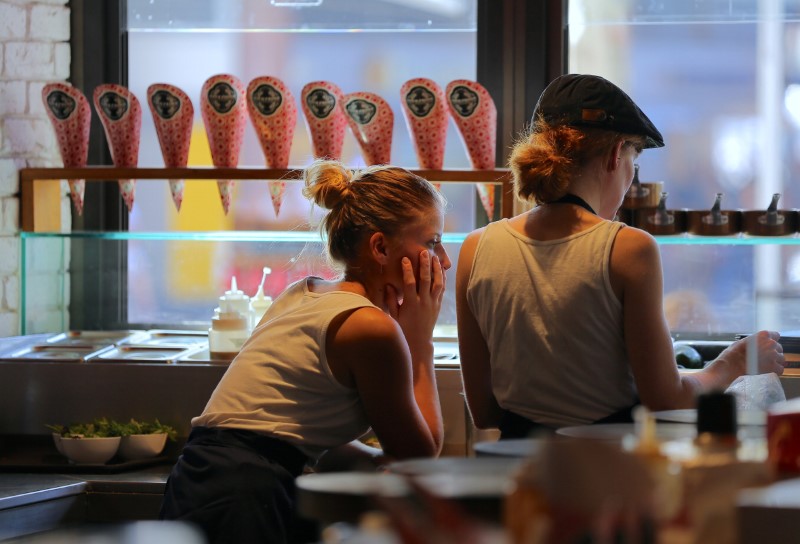By Ambar Warrick
Investing.com-- Australian retail sales fell for the first time this year in October, data showed on Monday, as rising inflation and elevated interest rates now appeared to be taking a toll on consumer spending in most sectors.
Retail sales fell 0.2% in October from the prior month, preliminary data from the Australian Bureau of Statistics (ABS) showed. The data missed expectations for growth of 0.5% and came in well below September’s reading of 0.6%.
The reading is the first decline in retail sales since December 2021, and reflects the growing pressure on household spending from high inflation and interest rates. Australian consumer inflation surged to a 32-year high in the third quarter, while the Reserve Bank’s benchmark interest rate hit a nine-year high.
Retail spending on all industries except fresh food fell sharply in October, with department stores marking the biggest fall, the ABS said in a statement. Spending on restaurants and food delivery - a key source of spending this year - also fell for the first time since January.
“The October fall in retail turnover ends a run of nine straight monthly rises and suggests increased cost of living pressures including interest rate rises have started to weigh on consumer spending,” said Ben Dorber, ABS head of retail statistics.
The Australian dollar fell sharply after the reading, trading down 0.5% at 0.6715. Monday’s data shows that Australian economic growth is now set to cool after an initial post-COVID spike.
Consumer spending is a key driver of economic growth in the country, with a decline in the space likely indicating that the Reserve Bank was justified in slowing its pace of interest rate hikes.
The central bank raised rates by a relatively smaller 0.25% during its past two meetings, and signaled that it was trying to strike a balance between controlling inflation and curbing economic growth with high rates.
The Australian economy also faces potential headwinds from cooling growth in major export market China, as the country grapples with rising COVID-19 cases and civil unrest over its strict anti-COVID policy.
